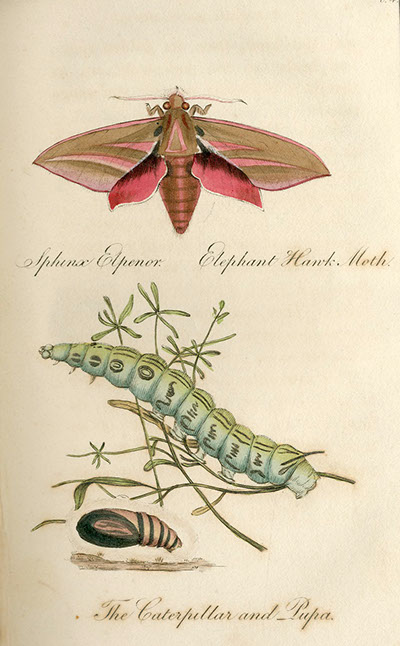roll over image for additional information / click image to view complete book
Science with very specific disciplines did not exist in the late 18th and 19th centuries, rather it was called Natural Philosophy – the study of nature and the physical universe. Included in Natural Philosophy were areas such as Astronomy, Physics, Chemistry, Biology, Agriculture, Botany, and Zoology. The fields of study represented in Natural Philosophy – from Astronomy to Zoology – were well-suited not only for education and introduction to a “spirit of inquiry,” and these books, such as Dialogues on Entomology, blended technical jargon with interesting descriptions. These instructional dialogues and catechisms were enormously popular, as the Connecticut Observer wrote in 1837 on Mary Swift’s First Lessons on Natural Philosophy, “It is a matter of rejoicing to all parents and teachers of youth, that minds like that of the writer are devoting their powers to such works – forming a new era in juvenile literature of the country.”
Explore more

Catherine Louisa Beaufort (British) Elephant Hawk Moth from Dialogues on Entomology, In Which the Forms and Habits of Insects are Familiarly Explained. 1819. R. Hunter.
On loan courtesy of Dr. Alan Rauch.
Geography
Botany
Zoology